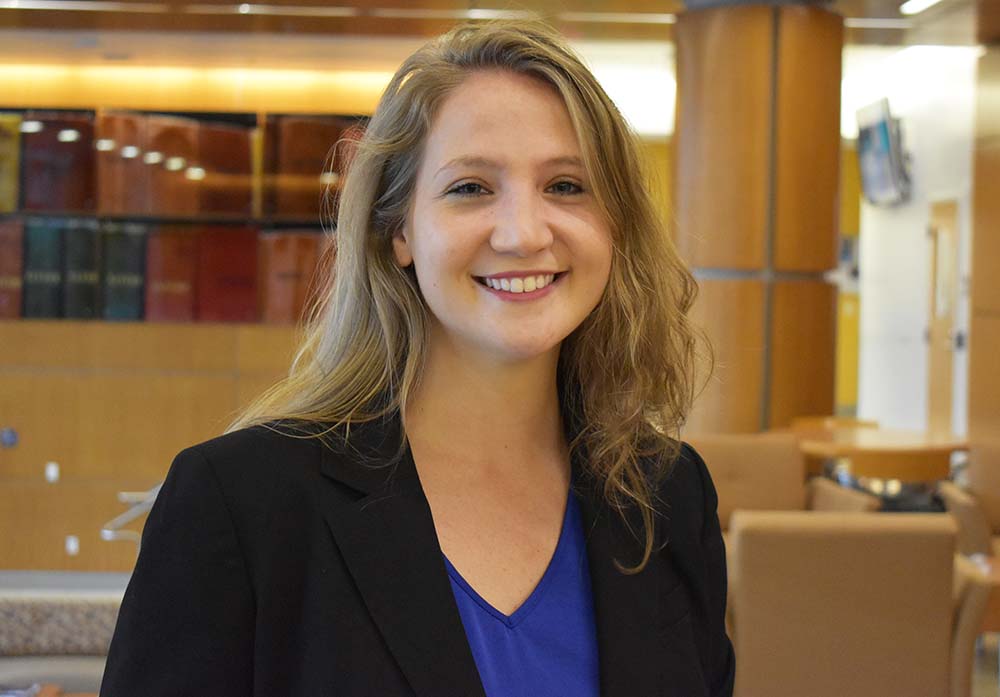Stephanie Cernera, Ph.D. candidate in the Brain Mapping Lab, received a 4-year $300K National Institutes of Health (NIH) Ruth L. Kirschstein National Research Service Award (NRSA) Individual Predoctoral Fellowship for her project titled, Wearable-Sensor Driven Responsive Deep Brain Stimulation for the Improved Treatment of Essential Tremor.
The prestigious fellowship covers full tuition, stipend, and educational expenses. Cernera’s mentors on the project are Dr. Aysegul Gunduz, BME associate professor, and Dr. Michael Okun, Adelaide Lackner Professor and Chair of neurology at UF Health.
The objective of this research proposal is to establish a physiology-driven responsive DBS system, which can provide targeted and personalized therapy, based on electromyography (EMG) signals.
Essential tremor (ET) patients treated with deep brain stimulation (DBS) are undergoing an inefficient and impersonalized therapy. The current paradigm constitutes limitations to the battery life of the implanted neurostimulator and to the therapeutic window of DBS, which often leads to adverse side effects. This proposal aims to develop a novel, responsive, patient-tailored DBS paradigm using wearable sensors to mitigate limitations of the current continuous paradigm, while uncovering several unknowns about ET, including its neuromuscular origin, propagation, and distribution.
Cernera’s current central hypothesis is that wearable sensors can detect correlates of movement that will provide the control signal for responsive DBS in a targeted and personalized manner. From these efforts, this research would provide improved tremor suppression using patient-tailored DBS paradigms, reduced adverse effects associated with continuous stimulation, and prolonged battery life of the INS, subsequently decreasing the frequency of surgical procedures necessary to replace these devices.
This research is innovative because it offers an individualized approach to DBS paradigms that may improve efficacy and reduce harm relative to current standards of care for DBS.
The purpose of the Kirschstein-NRSA Predoctoral Fellowship (F31) award is to enable promising predoctoral students to obtain individualized, mentored research training from outstanding faculty sponsors while conducting dissertation research in scientific health-related fields relevant to the missions of the participating NIH Institutes and Centers. The proposed mentored research training must reflect the applicant’s dissertation research project and is expected to clearly enhance the individual’s potential to develop into a productive, independent research scientist.
